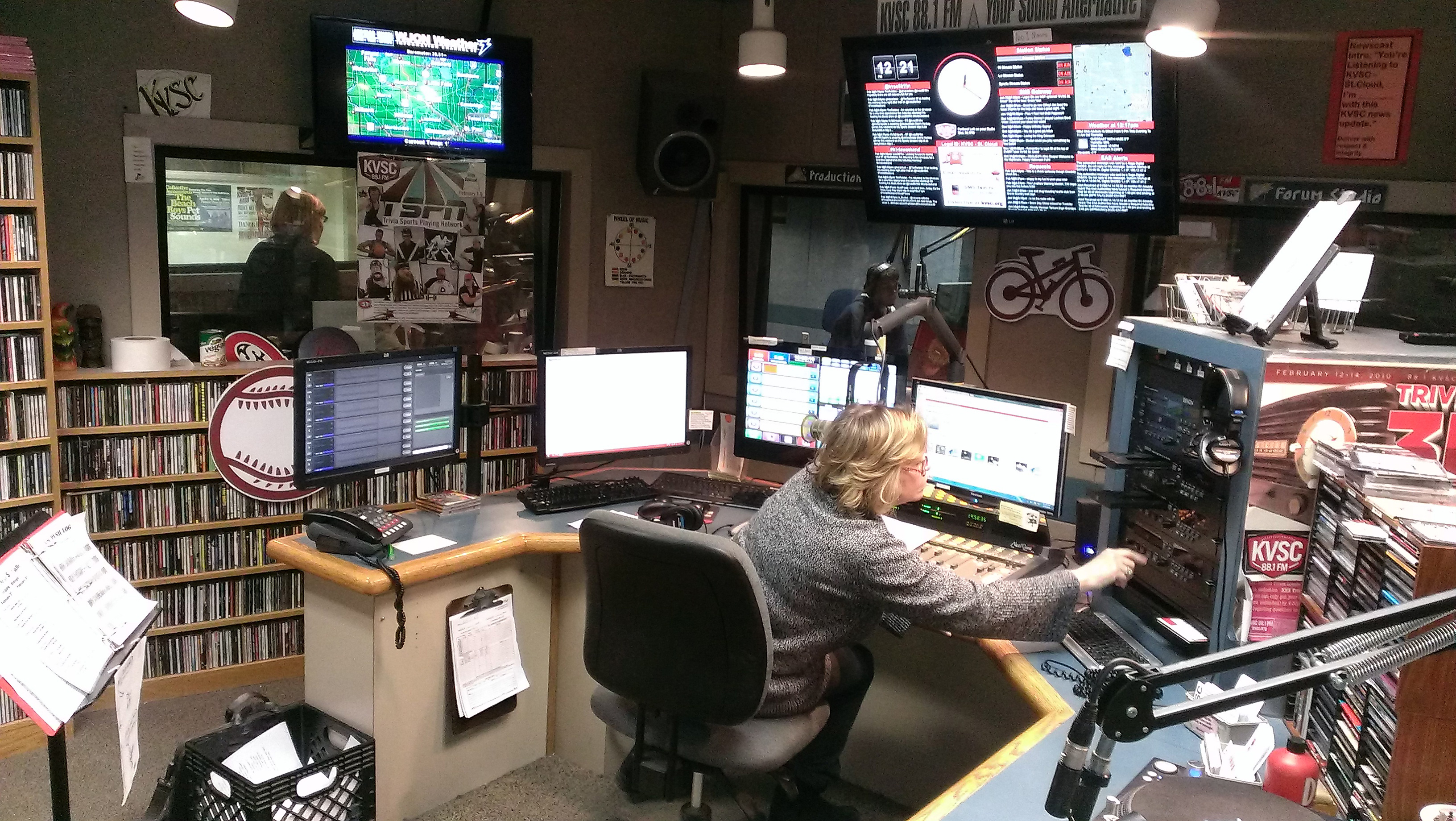
A man from Mars was visiting his girlfriend on Venus when he noticed the sun was not setting in the same direction as it does on Mars. Which direction is it setting and what is that planetary phenomenon called?*
For the next 50 or so hours, starting at 5 p.m. this afternoon, this is the kind of question that will prevent hundreds of people across the country from getting any sleep, and makes St. Cloud the center of the trivia universe.
This weekend marks the 35th consecutive year of Trivia Weekend, which started in the residence halls of St. Cloud State University to break the monotony of a Minnesota winter on campus, and is now run by KVSC Radio on campus.
There’s not as much interest anymore in the residence halls — kids are on to other distractions these days — but the generations previous have scattered across the country, assimilating others into their trivia culture.

More than 50 teams and more than 400 players are registered this year, several hundred more will volunteer to keep the contest running through the weekend. It’s not easy in the Internet age, especially when possession of an old urn — the Golden Urn — is at stake.
Before Google became the dominant crutch for the teams, creativity and a little mischief were critical components for a competitive team.
“You couldn’t find a book in the St. Cloud library during Trivia Weekend,” Alex Hartman, the station’s technical and engineering chief, says. Team members would check out as many books as they were allowed, on the oft chance one would be required for a question. Every National Geographic in the library regularly disappeared during the contest.

Several years ago, the contest required the answer to the ingredients of the signature drink at the Hard Rock Cafe in London.
But organizers waited until after bar closing hours in London, so a team called a bartender at the Hard Rock in Chicago, convinced him to check a staff directory for the chain for the manager’s home number and called him in the middle of the night for the answer, according to Jim Gray, KVSC’s operations director.
But even using online sources now is risky, Hartman says. Many teams will change entries on Wikipedia after they find the correct one, to thwart their competitors who might be looking in the same place.
Questions include visual and audio references. Images are sent to teams in advance, but no clues are revealed about what question might concern the image. Like this one, from last year’s Trivia Weekend:

In the absence of any clues, some teams have resorted to circulating images on social media, asking for as much information about it as possible. Gray says other teams have hired professional fact finders to research images.
The corresponding question to that image: They say Marilyn used to soak in a _________ bath? (Dom Perignon).

Gray says the security is tight. The volunteers who answer the phones don’t know the questions being asked, only the answers. The better to keep any from escaping before they’re asked. No cellphones are allowed in the room.
Code for a computer program used at the phone bank was written by a company outside of St. Cloud to be sure a “backdoor” couldn’t be exploited by a local programmer who might join a team.
Each year’s Trivia Weekend has a theme to it — this year it’s The Trivia Sports Playing Network, a parody of ESPN. When a space theme was selected last year, a technical director for SCSU’s TV station — a “Star Trek” fan — built a full mockup set of the starship Enterprise to use as a set for a TV simulcast of the weekend.
The Enterprise still occupies a full studio at the station, because what else would you do with a “Star Trek” set?
The station asks nine questions per hour, each with a point value based on degree of difficulty. More than 300 volunteers take turns answering the 100 phone lines that the college sets aside for the the tournament.
To be sure the Internet connection and the station’s audio stream — the lifeline for out-of-market teams — don’t crash, the internet service provider will station an employee on campus through the weekend. A comedy and production troupe made up largely of alumni — the Goat Posse — creates skits on the fly. And a house band plays its one and only annual gig through Sunday.
“Very well established professional musicians take the weekend off and become the Shake A Hamster Band. For this weekend only, it’s all parodies,” Gray says. This year, the group will parody a Prince song, and feature Prince’s keyboardist. “They never use their real names because they don’t want to admit what they’re doing.”
If a lead singer sounds like Jill Riley of The Current, it may not be coincidence.
No matter what they come up with this weekend, however, the band will have a difficult time topping their 2007 parody, The Rolling Stones’ “You Can’t Always Get What You Want.”The band convinced the St. John’s Boys Choir to contribute the early vocals on “You Can’t Always Get Question One,” (“but if you try sometime, you might find, you get question three”).
While the number of teams has dropped in recent years — it peaked at 80 in 2007 — the number of players on a team has increased. “Teams learned early that 6 or 7 team members isn’t going to cut it,” Jim Gray says. Now, some teams have well more than 30 members, which broadens the knowledge base and also allows some team members to stagger sleep schedules and not miss questions.
*Initial question answer: East, Retrograde Rotation
